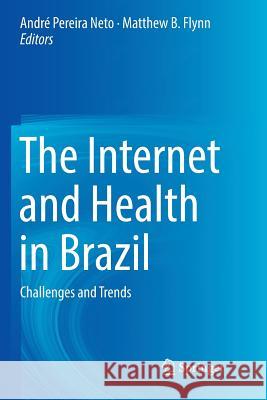The Internet and Health in Brazil: Challenges and Trends » książka
topmenu
The Internet and Health in Brazil: Challenges and Trends
ISBN-13: 9783030075873 / Angielski / Miękka / 2018 / 459 str.
Kategorie BISAC:
Wydawca:
Springer
Język:
Angielski
ISBN-13:
9783030075873
Rok wydania:
2018
Wydanie:
Softcover Repri
Ilość stron:
459
Waga:
0.69 kg
Wymiary:
23.39 x 15.6 x 2.57
Oprawa:
Miękka
Wolumenów:
01
Dodatkowe informacje:
Wydanie ilustrowane











